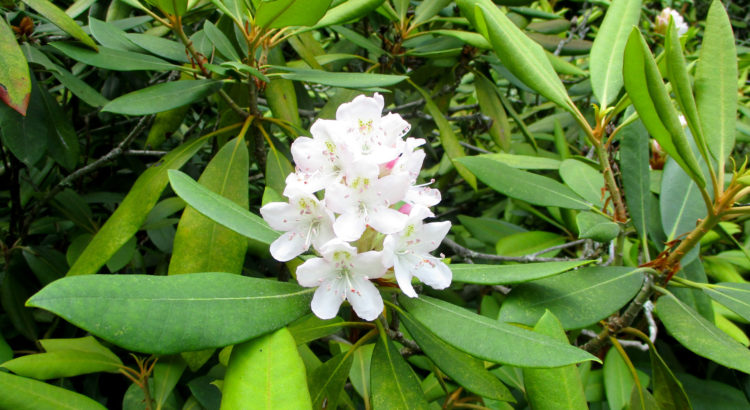It is still hot and dry here in southwestern NH, although the weekend forecast called for cooler and wetter weather. It is my guess that the warm temperatures have contributed to the early bloom at the Rhododendron State Park grove this year. What else is it? A mystery. Many theories are offered, but as logical as they may seem, they are only theories, and as yet unproven.
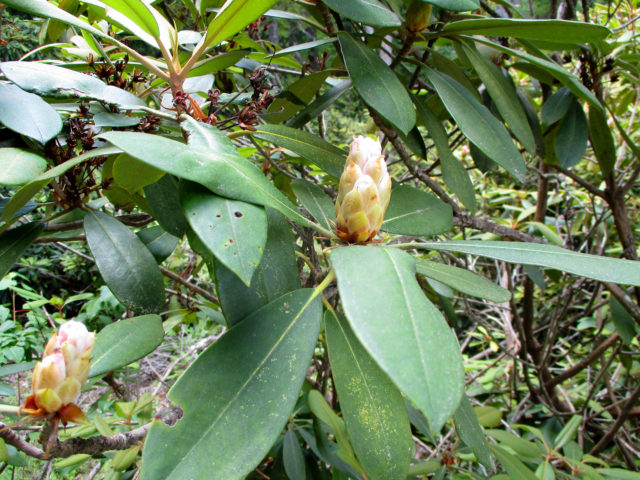
And besides all that, why are there so few blooms this year? More theories, but the study of plant science may offer some more solid answers to that question.
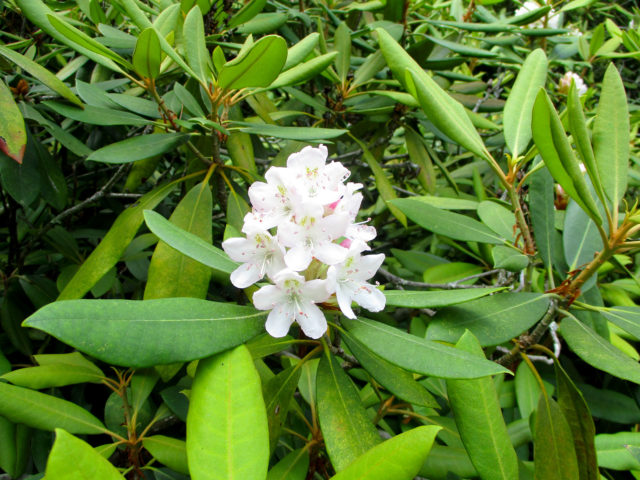
Rhododendron maximus is not a hybridized plant. It is a naturally occurring species that is native to eastern North America. There are basically two main strategies for plants to multiply. Put simply, by seed or by taking root. Rhododendrons do both, as many other plants do as well. it usually takes much more energy to develop seeds than to flop and grow roots (gravity does most of that work), resulting in less importance placed on flowering (all for seed development). In fact it is likely that if samples from different locations in the grove were tested, they may be so similar genetically that the whole grove could be called one plant. It seems that I am digressing as usual.
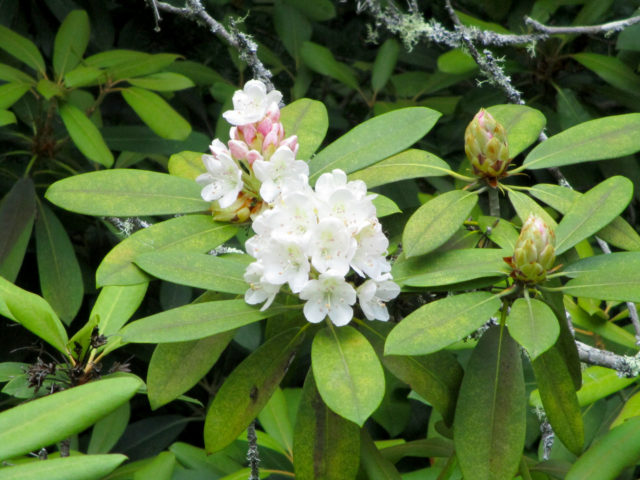
Back to the subject – the rhododendron bushes that we all see in front yard gardens have been genetically altered to pour everything into a beautiful bloom every year ( among other things, such as vigorous growth), so we have come to expect that. It does not always happen in the natural world, though, as is the case this year in Fitzwilliam.
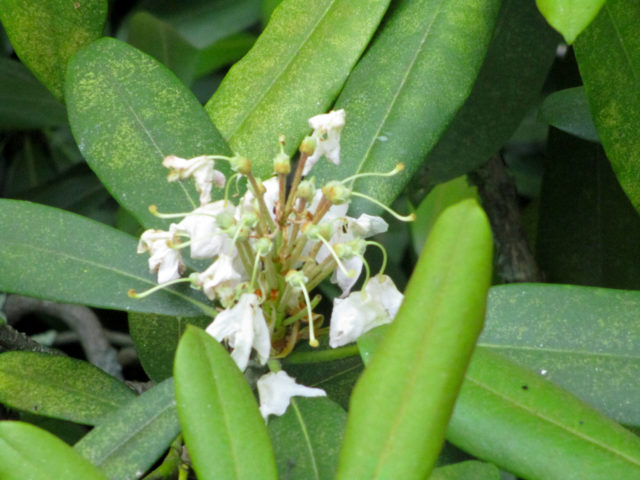
On to what is happening this week at the grove – there a a few blooms out here and there – the biggest show can be found at the bridge about halfway around the loop trail. Some spent blossoms from this year can be seen there as well-things are moving quickly, but there are also some flower buds that are still not open very much, so next week will still be good for viewing some full blooms. When will “peak” bloom be this year? I hesitate to say that there will be a peak bloom this year – it’s all spread out more so than usual. After next weekend (July 16-17) there won’t be much left in the way of new blossoms, especially if the temperature goes up again, as it usually does in July.
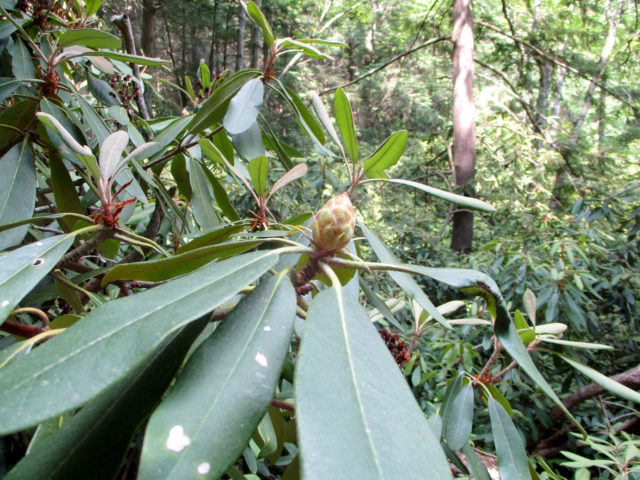
Mosquitoes and deerflies are very active in this hot muggy weather, so come prepared-they are thick this week.
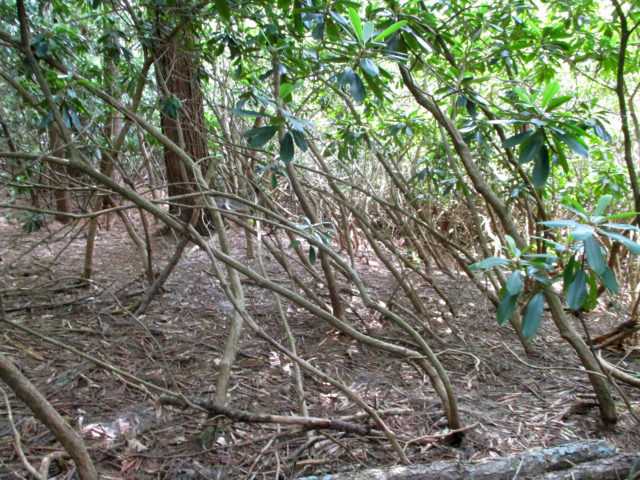
Until next week,
Ted Lenk

